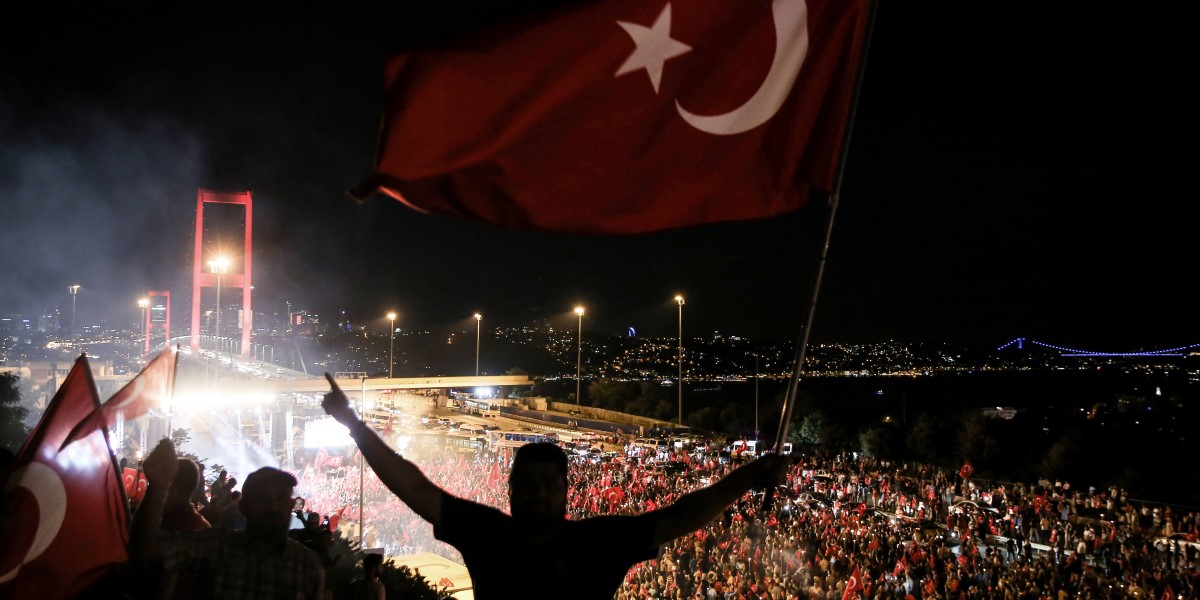As a researcher working in the field of media sociology, for years I have followed Turkey's image in American and British media. I do not remember ever coming across such a dogmatic evaluation of Turkey. It was first during the Gezi Park protests that we saw leading American and British media organizations, with CNN at the head, taking sides in Turkey's domestic politics and conducting propaganda on the need for administrative change. Obviously, this was not a random attitude. There was political motivation behind it in support of overthrowing the government. While during the Gezi Park protests American and British media outlets took the protesters' side, they used the discourse of democratization and reflected the events not as the extension of a struggle over the administration, but rather as the opposition of the people to authoritarianism. This was a one-sided evaluation that ignored the political culture, the nature of the administrative struggle and the true meaning of the process of democratization in Turkey. However, no matter what, there was no theoretical deviation. The main factor referred to in the end was that of democratization. When we consider the analyses of Turkey in American and British media today, we see that ideological motivation has been added to political motivation, and this has created both dogmatism and theoretical deviation.
On the night of July 15, the people of Turkey were faced with an enormous attack. That night, Turkey's democracy survived a serious crisis. A closed organization connected to Fethullah Gülen within the military attempted to initiate a coup with terrorizing tactics. Civilians were fired on and tanks crushed people. Parliament was bombed and there was an assassination attempt on the president. That night, 240 people, 174 of whom were civilians, lost their lives resisting the coup.
As soon as American and British media got word of the coup, they spoke of it as a power struggle of two actors. They placed Erdoğan's management on one side and the Turkish military on the other. They presented Erdoğan's management as the symbol of authoritarianism, while the Turkish military was the modernizing actor. When the coup was seen to have failed, a systematic wave of manipulation began with the thought that Erdoğan would be strengthened even further by this situation. The types of allegations that appeared during this wave included: "The coup was fictional," "Erdogan will use this unsuccessful coup attempt for his own interests" and "All opposition will be liquidated," among others.
In addition to all of these, there was another thesis that addressed a realm further than that of discourse - the operational realm. It was emphasized that "Turkey was no longer a militarily safe region, that Turkey wouldn't be able to provide the necessary support in the struggle against ISIS [DAESH], and that the nuclear weapons in İncirlik [air] base were no longer safe due to the division with the Turkish Armed Forces."
Today, however, Turkey is militarily in a much safer state compared to the situation before July 15. Once the military staff who caused the present weaknesses have been removed, Turkey will have a much more dependable military. The fact that soldiers involved in the downing of the Russian plane were also among the July 15 coup forces is one of the most solid examples of this. With the defeat of the coup attempted by the Gülenist Terror Organization- (FETÖ) led junta, military-initiated sabotage possibilities have been minimized in Turkey.
In evaluations of Turkey's politics from American literature on modernization after 1950, the military's modernizing and progressive role is emphasized while politics are referenced as provincial. In the aftermath of 2000, however, we saw that evaluations pointing to the modernizing side of politics surpassed evaluations where the military's modernizing aspect was mentioned.
We also know that with the Gezi Park protests, evaluations about the Turkish military's supposedly modernizing role once again increased in American and British media. However, we regrettably see that in the evaluations on the night of July 15 and afterward, the thesis of the military taking over management as being better for Western interests has taken on de facto acceptance. This approach means to completely disregard Turkey's development process, the maturity level of its democracy and the people's overwhelming sensitivity to the issue of being led democratically. In the face of this indifferent attitude, Turkey's population is growing more politicized every day and engaging in the political arena more, in a more conscious manner.
The people of Turkey who came face to face with tanks and armed soldiers on the streets and who witnessed the murders of civilians feel a true sense of resentment from the dogmatic comments from American and British media. This resentment is aimed not just at certain media organizations' editorial carelessness or ideological blindness, but directly at the American management and the American image. Due to American and British media's vulgar, ideological and ignorant attitude in the aftermath of July 15, anti-Americanism is rapidly on the rise in Turkey.
[Daily Sabah, July 22, 2016]









